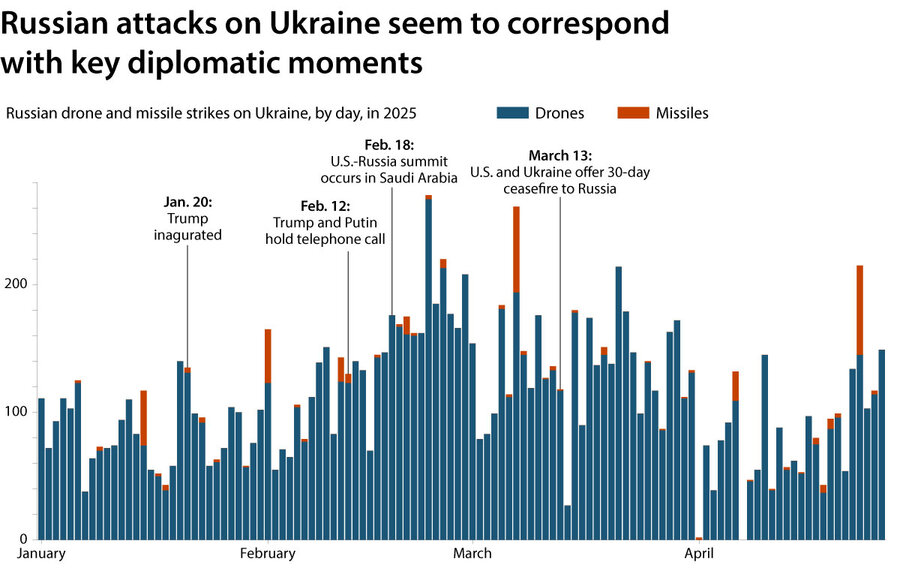Canadians voted in Prime Minister Mark Carney’s Liberals. The win was a historic turnaround. It also signaled a limit to Canadian tolerance for divisive politics. Conservative Pierre Poilievre had tapped frustration over rising prices, but U.S. President Donald Trump’s threats to Canadian sovereignty – even on election day he referenced “the cherished 51st state” – overtook the race, which many here called the most important election of their lifetimes. Ultimately Canadians placed their trust in a former central banker over a career politician to lead the country through this geopolitical moment. – Staff
The Iberian Peninsula was hit by a major power outage. It brought much of Spain and Portugal to a standstill Monday, halting trains, cutting phone service, and shutting down traffic lights and ATMs, affecting millions of people. Spain’s Prime Minister Pedro Sánchez said the cause was still being determined. Spanish power distributor Red Eléctrica was close to having power fully restored on Tuesday. The Portuguese National Cybersecurity Center said there was no sign of a cyberattack. – The Associated Press
The immigration focus shifted to sanctuary cities. President Trump signed executive orders on immigration Monday, including one directing top officials to identify cities and states failing to sufficiently comply with federal immigration laws, the White House said. Mr. Trump has criticized cities and states seen as limiting cooperation with federal immigration enforcement. Last week, a federal judge blocked the administration from withholding federal funding from more than a dozen of these “sanctuary” jurisdictions. – Reuters
The U.S. campaign against Houthi rebels in Yemen continues. An airstrike reportedly hit a prison for African migrants Monday, killing dozens and likely increasing scrutiny of the campaign. Known as “Operation Rough Rider” and launched March 15, it was also the subject of recent leaks on the messaging app Signal. More than 800 U.S. strikes in six weeks have destroyed “multiple” command centers and killed “hundreds” of Houthi fighters, decreasing the group’s ballistic missile launches against ships by some 70%, U.S. military officials say. Rebels have reportedly shot down seven U.S. Reaper drones. – Staff
China and the Philippines escalated competing claims in the South China Sea. Contention over a flashpoint rose as the U.S. and Philippine militaries underwent exercises nearby to underscore their mutual defense alliance. Chinese Coast Guard personnel landed on tiny but strategically located Sandy Cay and planted a Chinese flag to “exercise sovereign jurisdiction,” Chinese media reported last week. After they left, Navy and Coast Guard members from the Philippines landed Sunday and raised their national flag. Both countries have military outposts nearby. – Staff
Has the simplicity movement come to electric vehicles? The automotive press is abuzz over the full unveiling late last week of the Slate Truck from Slate Auto, a Michigan-based EV startup backed by Jeff Bezos. The pickup, shorter than a non-EV Ford Maverick but with a longer bed, comes in one color (guess). It has bare-bones features such as crank windows. No touchscreen. And it’s configurable; a kit turns it into a kind of small SUV. Range: 150 to 240 miles depending on the battery. Different for its category is its base price: $20,000, after federal incentives. That stands to broaden the market. – Staff













